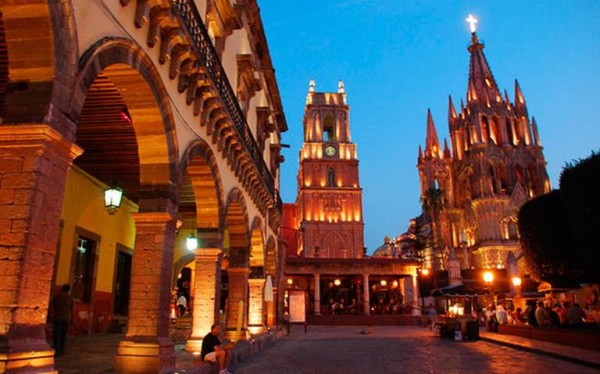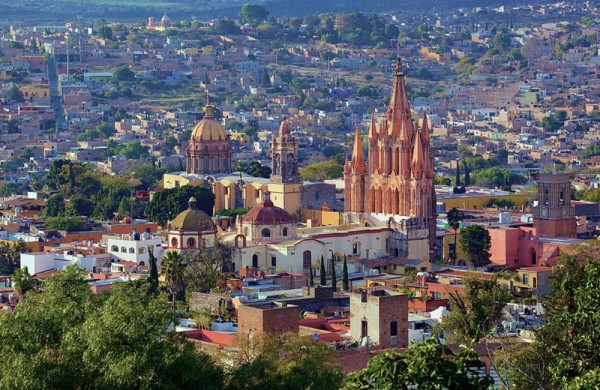Guanajuato has long been on the tourist trail thanks to the jewel in the state’s crown, San Miguel de Allende — a colonial city that has recently been named the Best City in the World by Conde Nast Traveler and Travel + Leisure magazines. Guanajuato’s main airport, located in Leon, has brought back 87 percent of its normal flight operations, with daily nonstop flights from Dallas, Los Angeles, Houston, Chicago, and Oakland/San Francisco. In the first half of 2021, Guanajuato welcomed 1.1 million visitors through the airport in Leon, and more than 320,000 of those were from the United States.
More flights are expected, too. According to the state of Guanajuato’s minister of tourism, Juan Jose Alvarez Brunel, there is potential for a direct flight from New York to Leon, which was addressed during his recent visit to New York. The flight details and timeline are still being discussed.
While San Miguel de Allende has always been the star of the state, 2022 may be the year to highlight other areas of Guanajuato for your clients, as the destination is, and always has been, “Covid-friendly,” meaning a destination where travelers can have space, spend time outdoors and will not be overwhelmed with hundreds of other travelers in the same area.
“We have based our tourism strategy on different segments: gastronomy, romance, culture, ecotourism, wine tourism, and MICE,” said Alvarez Brunel.
“Ecotourism has popped up with the pandemic,” he added. “People like to be outside and in close contact with nature. That has brought up the opportunity of developing that segment, and we have taken advantage of that.”

Alvarez Brunel suggests the destination of Salvatierra, a small town in the south of Guanajuato, where visitors can visit and explore old haciendas. It is the only city in Guanajuato that has a river flowing through its downtown — not a common occurrence in Mexico. Another important settlement is Chupicuaro, an archaeological site that is one of the oldest settlements recorded for the native people of Mexico.
The ministry is also developing tourism offerings in the town of Mineral de Pozos, once an epicenter of Mexico’s mining industry. Today it is a ghost town, but visitors have the opportunity to experience this time warp by strolling the cobblestone streets and exploring buildings that date back hundreds of years.
The ministry of tourism in Guanajuato has been ramping up other tourism offerings around the state, in addition to San Miguel de Allende. The city of Guanajuato, for example, is coming into focus for a more mainstream traveler. Long on the backpacker and budget travel route, as well as a hub for business travel, Guanajuato City is rising to meet its potential as a cultural destination exploding with color, cuisine, boutique hotels and experiences. Picture San Miguel de Allende a decade ago, and you’ll start to have a mental picture of the city of Guanajuato.
“Guanajuato City is a World Heritage city,” said Alvarez Brunel. “It has unique architecture, as it was built as a mining town, but today its architecture is best represented through its mansions, churches and public buildings.”
The viniculture of Guanajuato has been important to the state for centuries, but it is in the past few years that the destination has begun to embrace it. San Miguel de Allende has La Ruta de Vino, or its wine route, but the wine country of the state can be found outside of San Miguel, as well.
Travelers can step into the rural culture and traditions of winemaking, elevating the experience with food pairings and, of course, wine. The wine region currently has four paths, which depart from San Miguel de Allende in the directions of Guanajuato City, Queretaro, Celaya and Dolores Hidalgo.

